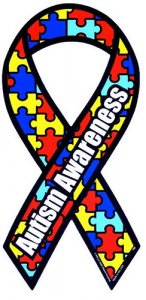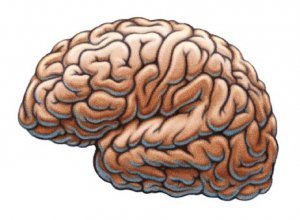
By: Malik Abdallah
Autism Spectrum Disorder, also known as Autism, or ASD, is a developmental disorder starting from birth and demonstrating its symptoms throughout a lifetime. There is a well known saying “when you have met one person with Autism, you’ve met one person with Autism”. I have worked with many children with Autism as a teacher and I can attest that each person with ASD is unique in their abilities, beliefs and personalities. It is impossible to generalize the skills of someone with Autism.
When looking at the media, not everything is true, or is only partially true. Everyone deserves the full truth as documented by scientists and studies. So, if you have a family member, or a child with ASD, or are just curious, this information is for you…
First, some truth about Autism Spectrum Disorder.
Symptoms of Autism
This video describes how to determine whether a child has ASD. The information presented in this video is accurate and closely resembles the information presented in the Center for Disease Control (CDC) article: What is Autism Spectrum Disorder?
Some signs of ASD can include:
- Avoiding eye contact
- Performing repetitive sounds/ gestures,
- Being unaware when people are speaking to you,
- Having difficulty with sensations
- Having difficulty playing pretend
According to the CDC causes of ASD include: having older parents, genetics, or taking certain prescription drugs during pregnancy. The CDC reports that there is no link between vaccines and ASD.
Myth #1:

By: IsaacMao
Savant Syndrome
Savant syndrome is defined as when someone with developmental disabilities, or a disorder in the CNS, has genius abilities in one specific area. These areas can include- memory, music, art, calendar calculating, math, language learning etc. Not all individuals with Autism are savants, and not all people who have savant abilities are Autistic.
These savant abilities have been portrayed in the media in many locations including the television The Good Doctor, and in the movie Rain Man.
Video: Dr. Shaun Murphy from TV show The Good Doctor, a surgical resident who has Autism, notices that a boy is harmed by a shattering window and Dr. Murphy uses his savant abilities to know how to save this boys life. Dr. Murphy is considered a prodigious savant. Despite still being a medical school student he can see the books in his mind and is a medical genius.
The Good Doctor does a good job at depicting savant abilities, but television shows and movies should do a better job at representing forms of lower functioning Autism so parents and children can understand that savant ability is only one form.
While the representations of individuals with savant syndrome as part of ASD in television and movies are not false, they can provide the public with the false assumption that the majority of individuals with Autism have extraordinary abilities.
The savant ability is much less common than one might think. Only 10 % of individuals with ASD (1% of the general population) have savant skills. If you believe that your child or someone you know has savant syndrome contact a doctor and they can assist further.
Myth #2:

By: ZaldyImg
Cures
Autism is a disorder that many wish that they can cure for their loved ones. Autism is not something that can be cured, but depending on the severity of the disorder the individual can learn to manage and utilize their symptoms in a productive and successful way to support their highest quality of life.
Some therapies that may help with an individuals symptoms of ASD may be:
(Disclaimer: consult you or your child’s primary care physician to determine the best choice for you or your loved one)
- Early intervention therapy
- ABN therapy
- Behavior therapy
- Speech-language therapy
- Play-based therapy
- Physical therapy
- Occupational therapy
- Nutritional therapy

By: Glass and Mirror
Photo: Swinging can help with relaxing the sensory system, and can improve children’s focus.
Chelation therapy is one “cure” that is not safe, nor effective. WebMd reports that Chelation therapy works because ASD caused by too much mercury and other hard metals in the body (this has not been proven correct).
Some physicians believe that injecting chelating agents (chemicals that remove toxic heavy metals from your blood) improves symptoms. WebMD includes that this use of chelation can be harmful, even deadly, and has not been approved by the FDA. In a study children went through the testing regimen, the scientists did not see any effect of the agent on the symptoms of the children who received it. Unfortunately this “cure” for ASD on the WebMd website can give harmful “solutions” to individuals looking for help and therefore is dangerous.
Overall, it is important to ensure that you are getting correct information to be able to fully support your child or loved one during their journey with ASD. While there are myths in the media, there are also facts. To find the facts, please speak to your doctor. Read trusted government and educational sources for reliable information.
References
Benefits of swinging for autistic children. (2020, January 06). Retrieved February 25, 2021, from https://www.easternjunglegym.com/benefits-swinging-autistic-children
Chelation therapy: Purpose, procedure, and side-effects. (2019, March 22). Retrieved February 15, 2021, from https://www.webmd.com/balance/guide/what-is-chelation-therapy#1
Rethink (Producer). (2012, April 4). Autism Awareness Video: Diagnostic Criteria for Autism [Video file]. Retrieved February 14, 2021, from https://www.youtube.com/watch?v=3w1c4sF4ZTg&feature=emb_logo
Smith, M., Segal, J., & Hutman, T. (2020, November). Helping your child with autism thrive. Retrieved February 25, 2021, from https://www.helpguide.org/articles/autism-learning-disabilities/helping-your-child-with-autism-thrive.htm
S, J., SW, S., N, S., & K, W. (2015). Chelation for autism spectrum disorder (ASD). Cochrane Database of Systematic Reviews, 1-29. doi:10.1002/14651858
Shore, D. (Writer). (2017). Burnt food [Television series episode]. In The Good Doctor. ABC.
Treffert, D. A. (2013). Savant syndrome: Realities, myths and misconceptions. Journal of Autism and Developmental Disorders, 44(3), 564-571. doi:10.1007/s10803-013-1906-8
What is autism spectrum disorder? (2020, March 25). Retrieved February 15, 2021, from https://www.cdc.gov/ncbddd/autism/facts.html
What is an autistic savant? (2017, December 01). Retrieved February 25, 2021, from https://www.appliedbehavioranalysisedu.org/what-is-an-autistic-savant/

Hello!
I absolutely love everything about this blog. People always assume that individuals with ASD know everything about one topic and that is simply not true. This was a great topic to debunk because people watch movies/tv shows and think that everyone with ASD has this quality. This topic is not talked about enough and I appreciate that you brought it up. Most characters from movies/tv who have a developmental or physical disability are always higher functioning and that also drives me crazy because it is not realistic. Thank you for sharing this information!
Hi!
I really liked how you included the Tvshow reference in your blog. It definitely helped me as a reader understand and also think about how a lot of medical shows paint an unrealistic picture of various disorders. Even though some facts are true it does give readers/watchers an idea of what it looks like but does not do the best job at reminding people it’s not exactly true in the shows. I work with many kids with ASD and I think it was a great topic to discuss as many people are always researching the topic and learning more as it seems to have become more prevalent. Great post!
Hello!
Your post about Autism is well-written. Each individual with Autism experience the spectrum as differently as everyone else. The purpose of treatment through therapy is client-centered and individualistic to the child. One method may help one person but not the other. I appreciate how you broke down the information clearly. However, regarding your WebMD findings, this I find disturbing. This approach appears to seek to “cure” those on the spectrum, which is not true. The risks outweigh the benefit. I agree with your arguement against this article, it is very well through out. Great job!
Hello!
I really enjoyed this blog post. The quote, “When you have met one person with Autism, you’ve met one person with Autism,” really caught my eye since all of my patients with ASD are unique and have different levels of functioning skills. The reference to the “Good Doctor” is also a nice reference to how not everyone with ASD has Savant Syndrome. Great job with this post!